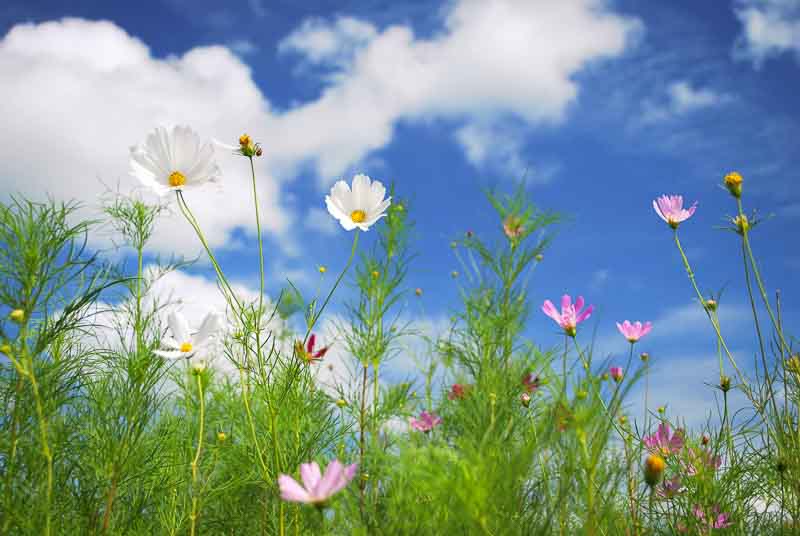By 慧珠
On 12 Oct 2017, I brought my 2 grandchildren to attend an outdoor activity organised by our Buddhist Centre’s Children Class facilitators. It was an outing to a vegetable and fruit garden at Ulu Pandan. The garden was conveniently situated next to an activity area where the facilitators intended for lessons to be carried out at.
The facilitators came early in the morning to wipe the tables, sweep the floor and clean the toilet at the activity centre to ensure a clean and hygenic environment for everyone. One of them even prepared her home-grown organic sugarcane with lemongrass drink that she wanted to share with everyone!
When the children and their parents arrived, the facilitators led the children in a simple singing activity and exercise routine to warm up. After that, they brought everyone to the garden and introduced the various plants in it to us. It was a very fruitful and enjoyable experience that we enjoyed immensely.
The following is what we learnt at the vegetable garden:
1. A banana plant can only grow a bunch of bananas in its lifetime. After harvesting the fruit, the plant is chopped down as the mother plant will die after producing a bunch of bananas. However, around the base of the roots of the banana plant are many baby banana plants that will grow into banana plants eventually.
2. How to grow vegetables:
First, loosen the soil and create a little hole in it to place the seedling. After that, tamp the soil down to ensure that the roots make direct contact with the soil. If there are leaves on the seedling, we have to trim the leaves out or they will rot in the soil which will affect the growth of the vegetable plant.
Be very careful not to hurt the earthworms when digging holes in the soil. Gardeners have to be maintain awareness so as not to hurt other living creatures in the process of planting.
Besides providing the plant with adequate sunlight, fertiliser and water, it is very important to remove the weeds growing around the plant as the weeds will fight with the plant for sunlight, water and nutrients. When thinking about weeding in relation to the Dharma, I feel that weeding is similar to the mental anguish we carry in our hearts. If we do not let go of the mental anguish and negative thoughts, they will suffocate the innate brightness we all have and prevent it from shining through.
3. We also learnt how to make compost from soy beans, fruit peel and vegetable scraps. After having buried them in the soil for 3 months, they will break down into fertiliser. This is 100% organic fertiliser with no chemicals. I feel that this way of fertilising is cheap and environmentally friendly. Furthermore, it is a meaningful way of doing our bit for the environment by recycling waste that could had eventually ended up in a landfill.
When we returned to the activity centre, the children played a game of treasure hunt which they thoroughly enjoyed. One of the facilitators gave out some activity sheets related to gardening for the children to complete and to apply their knowledge of what they had learnt in the garden.
The children read an article on Buddhism and gardening. The following is a summary of the article.
- The author described how his step-father used to say he was stupid and useless from a very young age till he was 13 years old. As a result his self-esteemed suffered. Because he had little confidence and his self-esteem very low, he grew up to be a selfish, ignorant and arrogant person. He would steal, beat up other people and make fun of people who were suffering. When his mother or grandmother tried to teach him, he would pretend to listen when in reality, he did not accept their care and advice. As a result of all the bad seeds he was planting in the garden of his mind, it became full of weeds.
- After many years, he felt that he had completely lost control and unable to free himself from the kind of person he had become. All the years of cultivating bad seeds had turned him into an angry, selfish and ignorant person.
- He came to the feel shame and unhappiness at the pain he had caused to other people and tried to remove the weeds (bad habits) and started to plant good seeds that will reap hope, compassion and love. The author also tried to encourage others who were like him, lost in the darkness of the bad habits they had cultivated and taught how to remove the weeds so that they can change their lives for the better.
- The author also learnt that only constant reflection and weeding would lead to a peaceful and clear mind. He taught children the law of causality: if you plant a bad seed, you will reap bitter fruit and if you plant a good seed, the fruit you reap will be sweet and healthy. The role of reflection is to allow oneself to see the weeds in their mind and remove their accordingly. Only then will peace and brightness prevail.
After reading and reflecting on this article with the children, the facilitators served a delicious vegetarian lunch which everyone thoroughly enjoyed.
Conclusion
I feel that this learning trip was a meaningful and fruitful one. The children not only learnt about how to garden in a mindful and compassionate manner, they also related the experience to the Dharma and the law of causality of reaping what you sow.
The Children Class facilitators put in a lot of effort to look after and teach the children every Saturday. They will do their best to look for suitable teaching material like videos, stories, art work and games to teach the children good values and cultivate the seeds of Dharma. Besides that, they also prepare snacks for the children to eat during break time to ensure that the children do not go hungry. Their quiet and unselfish dedication is indeed, inspiring. My four-year-old grandchild enjoys attending the Children Dharma class and I am very grateful to the facilitators who sometimes play and teach him on a 1 to 1 basis because he is much younger than the rest of the children. I want to take this chance to express my gratitude to all the facilitators in the children class. Be with Buddha!



